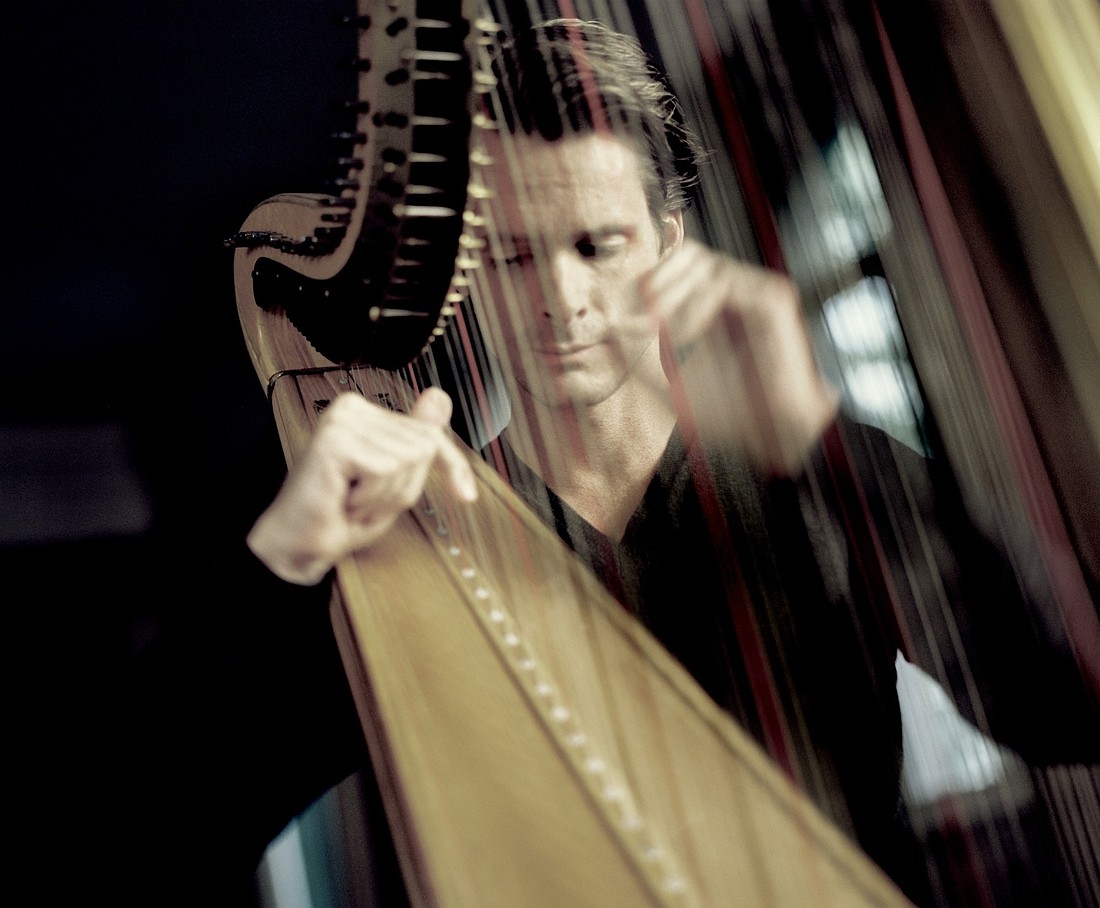- December 26, 2024
-
-
Loading

Loading

Anu Tali, music director of Sarasota Orchestra, brought an unusual program to the Van Wezel Sunday afternoon for the ensemble’s sixth Masterwork series of the season. It opened with a rarely heard version of “The Wood Nymph,” by Jean Sibelius. A work that’s as picturesque as it is evocative of its subject, it’s also musically repetitious but its story line, told by narrator Jeffrey Plunkett, makes it more interesting. The problem was the sound system, which muffled most of his words so it was necessary, even though the narration was in an English translation, to follow along by reading the story while it was being read to us.
Fortunately, the next work, Glière’s Harp Concerto, was a confection of beautiful sounds and lush, romantic music filled with gorgeous melodies. The soloist, Xavier de Maistre, is indeed a master of his instrument with a technique to burn and a magnificent range of dynamics and colors. The work itself is somewhat reminiscent of other great works. The middle movement, a Theme with Variations, sounds a bit like a Brahms symphony. And the finale, marked Allegro giocoso, is like Handel’s “Harmonious Blacksmith” turned on its side. Still, it’s a work that’s fun to hear and, in the hands of de Maistre and Tali it was so masterful, it prompted a solo harp encore: “Carnival in Venice.”
The second half of the program was devoted to Tchaikovsky’s stunning Symphony No. 6, the “Pathétique.” Here the Orchestra became the soloist with a sharply enunciated sound, warm, rich lower strings (especially violas), wind solos that knocked me into my chair and some great sounds from the brass. The second movement can be a klutzy waltz because Tchaikovsky chose to write it in 5/4 time (try dancing to that). But Tali and the Orchestra made it graceful and delicious. There’s no way to keep an audience from cheering after the brilliance of the third movement but Tali, arms raised in the air, stopped us mid-clap to continue into the Adagio finale, filled with great gulps of silences like sobs, and sounds that, through the judicious use of inner voices, went right to the heart.